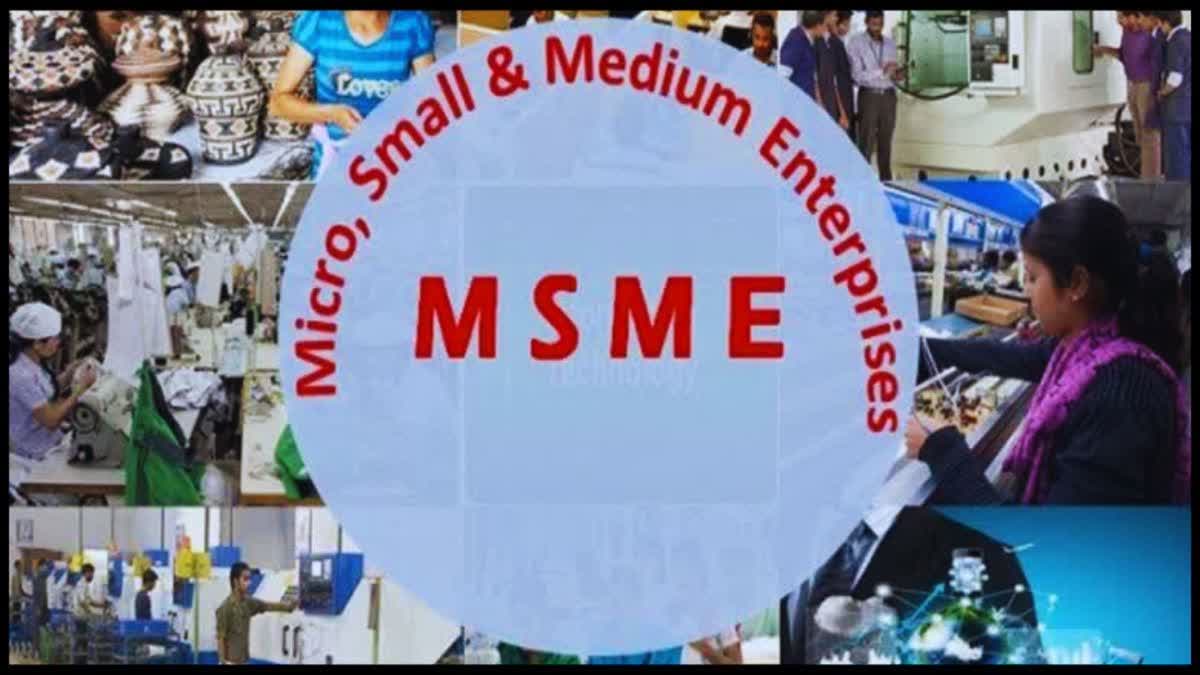New Delhi: The PHD Chamber of Commerce and Industry (PHDCCI) marked a significant milestone with its 1st MSME Banking & NBFC Excellence Sammaa: 2025 event. The conference brought together policymakers, industry leaders, and financial experts to discuss the pivotal role of Micro, Small, and Medium Enterprises (MSMEs) in India’s economic development and the need for financial reforms to support this vital sector.
Minister Highlights “Sabka Saath, Sabka Vikas” Approach
Addressing the gathering, Minister of State for Finance, Pankaj Chaudhary, praised the PHDCCI for completing 120 years and its efforts in fostering economic growth. He reiterated the government’s commitment to “Sabka Saath, Sabka Vikas, Sabka Prayas,” emphasizing inclusive development in line with the vision of Viksit Bharat @2047.
“MSMEs contribute 30% to India’s GDP and provide over 24 crore jobs. This sector is the backbone of the economy and a crucial driver of exports and inclusive development. Under Prime Minister Narendra Modi’s leadership, the government has eliminated over 1,500 outdated laws, introduced labour reforms, and implemented schemes like the Emergency Credit Line Guarantee Scheme (ECLGS), benefiting MSMEs immensely,” Chaudhary stated.
He also stressed the importance of empowering women in the workforce, citing the success of initiatives like the Mudra Yojana, which has disbursed over ₹31 lakh crore, with 60% of beneficiaries being women. “If we aim for a developed India by 2047, we must ensure equal opportunities for all, including women and rural artisans,” he added.
MSME Financing Needs Overhaul: Sahchindra Nath
Speaking exclusively to ETV Bharat, Sahchindra Nath, Chair of the BFSI Committee, highlighted gaps in MSME financing. He proposed introducing a credit guarantee scheme for NBFCs lending to MSMEs to address liquidity issues.
“MSMEs are crucial for local manufacturing and global supply chains. However, many NBFCs lack the liquidity needed to support these enterprises. By guaranteeing loans to NBFCs financing MSMEs, we can bridge this gap. Such measures will attract global players, improve supply chains, and strengthen India’s economy,” Nath said.
He also pointed out that while the priority sector lending requirement for banks includes MSMEs, the actual credit flow has not increased proportionately. “Reorganizing the banking and NBFC systems to focus on MSME financing is vital. The government should consider a guarantee scheme for NBFC loans to ensure liquidity and credit availability,” he added.
Reforms in MSME Policies Discussed
Dr. Ishita Ganguli Tripathi, representing the Ministry of MSMEs, highlighted the sector’s rapid formalization. She noted that as of April 2023, over 5.86 crore MSMEs had registered under Udyam, compared to 1.65 crore a year earlier.
“Formalization provides MSMEs with an identity, enabling them to access priority sector lending and benefits from central and state government schemes. Initiatives like PM Vishwakarma focus on rural artisans and traditional craftspeople, ensuring inclusive growth,” Tripathi said.
She also emphasized efforts to ease doing business, including simplified Udyam registration, increased credit guarantee coverage, and the promotion of equity funding for MSMEs. “The government has partnered with SIDBI to support informal micro-enterprises, while public procurement policies ensure market access for MSMEs,” she added.
Behavioural Shift Post-Demonetization and GST Implementation
Shachindra Nath, Chair of BFSI Committee, noted a significant behavioral change post-demonetization and GST implementation. He explained that these reforms formalized business operations, leading to better financial conditions for small traders.
“However, challenges remain. Banks are comfortable fulfilling their priority sector lending targets but are hesitant to go beyond. A dedicated focus on MSME financing through NBFCs is necessary. Providing guarantees for loans given to NBFCs financing MSMEs can double credit availability and support sector growth,” he stated.
MSME Banking & NBFC Excellence Sammaan – 2025
The event also celebrated outstanding contributions to MSME financing through the 1st MSME Banking & NBFC Excellence Sammaan – 2025. Recognitions included:
• Best Bank in MSME Lending: State Bank of India
• Best Large NBFC in MSME Lending: Tata Capital Financial Services Limited
• Best Medium NBFC in MSME Lending: Northern Arc Capital Limited
• Best Upcoming NBFC in MSME Lending: Aye Finance Private Limited
• Best FinTech in MSME Lending: Invoicemart
• Best NBFC in MSME Co-Lending: U GRO Capital Limited
• Best SME Media Coverage: Money9



